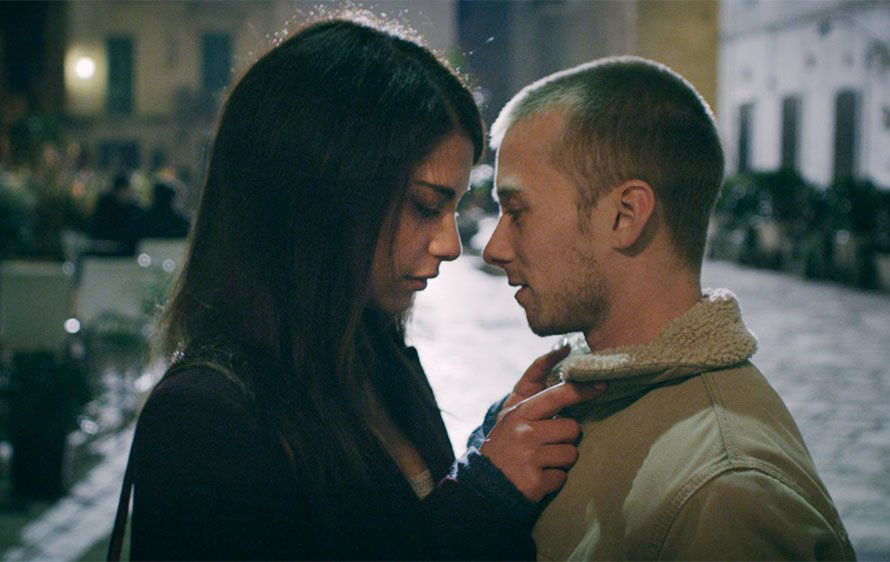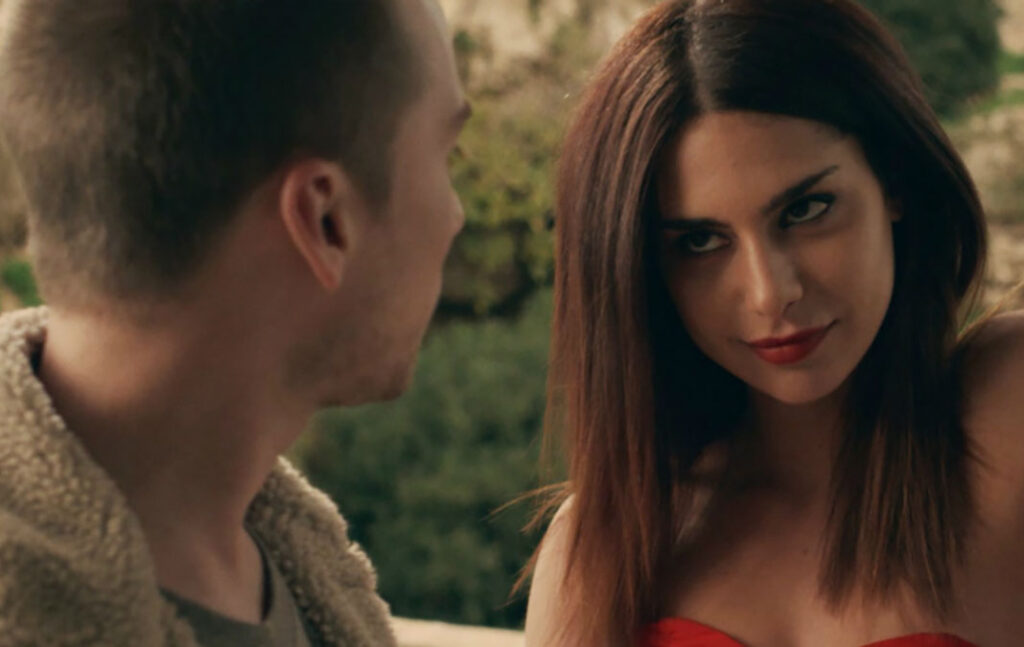Lou Taylor Pucci plays Evan, an American twenty-something who, upon the death of his mother and a bar fight, packs his bag and impulsively flies to Italy to avoid criminal charges while gaining some much-needed perspective. Before long he finds himself working at a countryside olive farm by day and going on dates around Italy with the mysterious and captivating geneticist Louise (Nadia Hilker) by night. While their relationship develops, it becomes clear that Louise has a serious, even monstrous secret, and it is only a matter of time before Evan finds out.
Right off the bat, this small-budget horror film has no business looking as expensive as it does. It goes beyond the sparse yet impressive creature effects that are peppered throughout. Shot on location, the plethora of drone shots capture the Italian vistas and villas alike with soaring exuberance. The ancient buildings that dot the streets of Bari and the ancient ruins of Rome serve as a perfect backdrop for a story that is focused on the consequences of the past and how it impacts our characters’ ability to renew themselves and keep moving forward. The budding romance between Evan and Louise is surrounded by history, much like how our characters’ own histories and pasts inform their relationship.
The majority of “Spring’s” runtime is spent on conversations between its characters as they get to know one another. These conversations could have turned the film into a drag, especially for those who were looking for more “horror” in their romantic horror. However, the chemistry and performances from Pucci and Hilker mostly keep the ship afloat when the dialogue falters. While generally charming throughout the film, Evan is given some particularly insufferable one-liners and groan-inducing come-ons. These may be accurate for the average American male but become a problem when the film expects us to take them seriously.

Louise, alternately, proves to be infinitely compelling as a character, played with magnetic charm by Hilker. This makes it even more unfortunate that by the end of the film she still feels puzzlingly unexplored. This is perhaps “Spring’s” greatest weakness. The film ends up so preoccupied with exposition about what is happening with Louise that we lose some of the character in the process. The most egregious example of this being an absolute DUMP of exposition about two-thirds in, masked by a flashy single-take shot through the streets of Bari. The cinematography is impressive but makes the cavalcade of information even more difficult to absorb. It is over-explained but necessary to get “Spring” to its conclusion, which does not so much “drop the ball” as much as it disserves Hilker’s character and all the exciting possible conclusions left on the table.
If none of this sounds particularly scary, that would be because in general “Spring” is not a very scary film. The creature effects are impressive when they are on display, and each “monster scene” is distinct, but they are hardly the focus of the film. The horror elements are used to bolster the story and to provide tension to the relationship at its core, so gore hounds beware—you will have to get your splatter fix elsewhere.
When “Spring” works, it feels like a pitch-perfect indie romance whose stakes are wonderfully enhanced by its cosmic horror elements. Unfortunately, it stumbles when it feels the need to explain itself in large stretches, detracting from the story’s mystery as well as the development of its characters. For a debut feature Benson and Moorhead certainly bring a refreshing and original sensibility that has only strengthened as time has gone on (this year’s “After Midnight” was produced by the duo and it is fantastic), but “Spring” feels more like a stepping stone towards something much greater rather than a revelation all its own.


